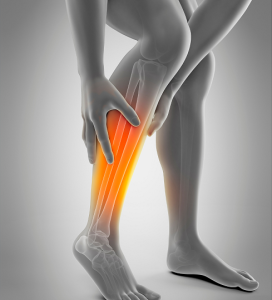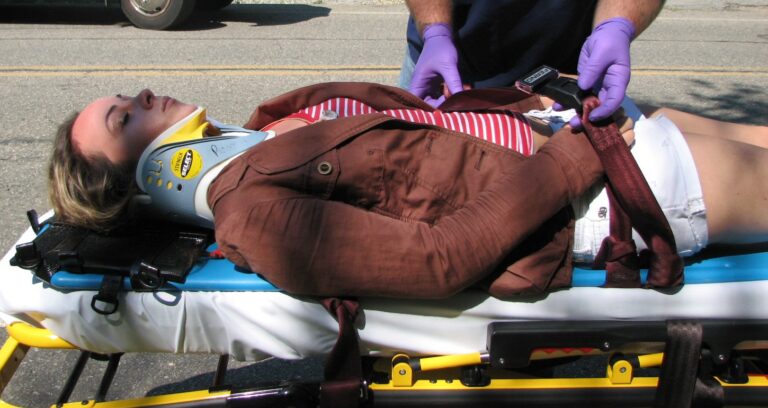Long-Term Effects of Untreated Tendonitis

Tendonitis is when a tendon becomes inflamed or irritated. A tendon is the tissue that connects muscles to bones. This condition often happens from repetitive movements or overuse, causing pain and discomfort near joints such as the shoulder, elbow, knee, or wrist. If caught early, treatment can help reduce symptoms and promote healing. However, if left untreated, tendonitis can lead to long-term problems. Understanding these risks shows how this condition can affect your overall health.
Chronic Pain
One typical long-term effect of untreated tendonitis is chronic pain. When inflammation persists, it can become a constant source of discomfort. This pain might start as mild soreness during physical activity, but it can progress to a steady ache even at rest. Over time, if movements that worsen the affected tendon are not addressed, the pain may spread to other areas.
Chronic tendon pain can significantly interfere with daily activities. Simple tasks like lifting objects or walking may become difficult. Without proper treatment, the body struggles to heal, and ongoing strain can worsen inflammation and discomfort. As a result, many people experience a decline in mobility and a reduction in their overall quality of life.
Ankle Swelling
Persistent tendonitis can cause swelling or thickening of the Achilles tendon tissue. This condition, also known as tendinosis, happens because ongoing inflammation triggers the body’s repair process. Over time, the tendon may become visibly swollen, and scar tissue may harden it, making it more rigid.
Thickened tendons are less flexible than healthy ones. This reduced elasticity makes movement more difficult and increases the risk of injury. For example, limited motion in the affected joint can lead to stiffness, which in turn affects balance and coordination. If left untreated, these changes in the tendon can become permanent, greatly affecting daily activities and physical performance.
Tendon Rupture
Tendon rupture is a serious condition that can occur if tendonitis is left untreated for too long. When a tendon becomes inflamed, repeated stress can cause its fibers to weaken over time. This increases the risk of a partial or complete tear, especially during sudden or forceful movements.
If a tendon ruptures, symptoms usually appear quickly and are quite noticeable. Typical signs include sharp pain, swelling, and difficulty moving the affected joint. A torn Achilles tendon can make walking almost impossible without medical help.
Treating a ruptured tendon typically requires surgery, followed by weeks or even months of rehabilitation. Catching and treating tendonitis early can help prevent ruptures and is much less invasive and disruptive to your daily life.
Scar Tissue
Untreated tendonitis can lead to the formation of scar tissue in the affected area. Repeated inflammation and damage cause the body to produce fibrous tissue as part of the healing process. While this tissue helps stabilize the tendon temporarily, it is less flexible and more prone to injury than healthy tissue.
Scar tissue buildup can also significantly restrict movement in the affected joint. The stiffness caused by scar tissue often leads to more discomfort, creating a cycle of pain and limited mobility. Treating tendon inflammation early may help prevent long-term scarring, thereby maintaining both function and comfort in the affected tendon.
Get Treated for Tendonitis
Tendonitis is a condition that should not be ignored. Chronic pain, reduced flexibility, tendon ruptures, and scar tissue are just a few of the complications that frequently arise from delaying treatment. These effects significantly impact mobility and may limit everyday activities. If you’re experiencing signs of tendonitis, such as pain, swelling, or stiffness in a joint, take action now. Early diagnosis and treatment improve recovery and reduce the risk of lasting damage. Speak to a foot and ankle doctor about your symptoms to explore treatment options.
- What to Expect When Visiting a Foot and Ankle Specialist
- Causes of PTSD
- The Link Between Plantar Fasciitis and Weight Gain: What You Need to Know
- How Pet Ownership Can Positively Impact Life with Fibromyalgia
- The Importance of Stretching and Flexibility in Sports Medicine
Dr. Emma Green is a health and wellness expert with over 10 years of experience in nutrition and fitness. Passionate about helping others live their healthiest lives, Dr. Green shares practical advice on wellness, nutrition, and sustainable living through LivingSpristine.






